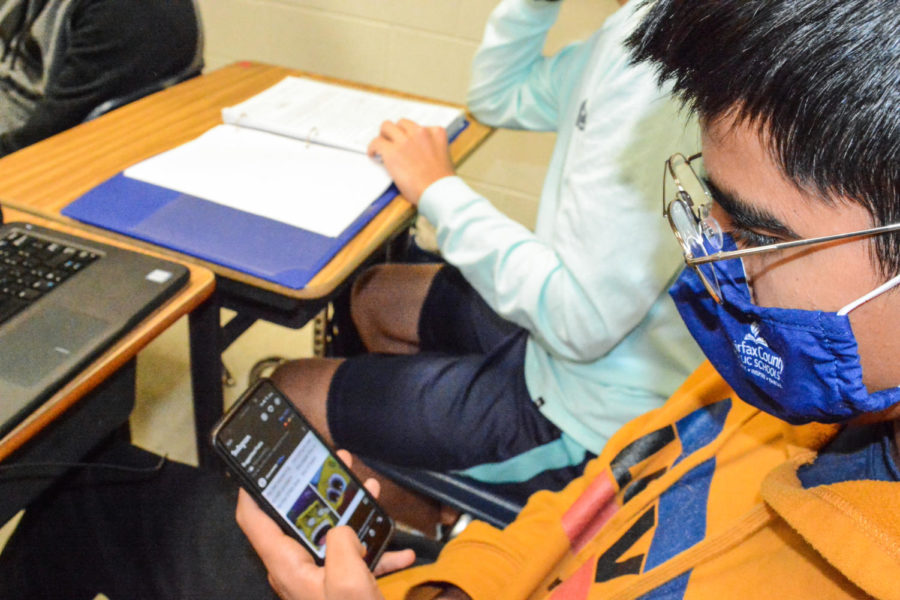Whistleblower leaks Facebook data, affecting students
Sophomore Rahul Sheoran scrolls through Instagram during geometry class.
December 2, 2021
A former employee at Facebook, Frances Haugen, testified before a Senate Commerce subcommittee on consumer protection in early October. She voiced her concerns about Facebook’s impact on youth and U.S. democracy.
Meta Platforms Inc., formerly Facebook Inc., owns Instagram, WhatsApp, Oculus VR, Onavo and other companies. Instagram is popular among students.
Prior to the Congressional hearing in October, Haugen leaked company documents to The Wall Street Journal. At the hearing, she explained how the algorithms latch onto things that people want to continue to engage with and often create feedback cycles in which children are using Instagram to self-soothe but then are exposed to more content that lowers their self-esteem. The internal research showed that Instagram affects the self esteem of girls in a negative way.
These platforms are often the first thing students look at in the morning. It is a way to relax during class.
“[Social media] allows people to say mean things to each other that they would not necessarily say to somebody’s face,” school psychologist Kristina Crawford said. “There’s some truth to the phrase nastiness sells [and the] algorithms perpetuate that to make more money.”
According to an article published in the Official Journal of the American Academy of Pediatrics, social media among teens and tweens allows for positive socialization and communication such as collective creativity through the sharing of artistic or musical endeavors. However, there are negatives as well.
“You only ever see what people post on there,” Crawford said. “[Students] end up losing the perspective that people only post what they want to post up and it’s difficult to maintain a real, true perspective of reality.”
False information has also found a home on Facebook. The company has reported taking steps to stop the spread such as moderation of harmful content by independent fact-checkers.
“Facebook should be a lot more moderated, especially with false information,” junior Heather Schneider, who uses Instagram to share art pieces, said. “I don’t think the government regulates big tech industries like Google, Facebook and Apple enough, and I definitely see them getting worse if there is no crackdown.”
Currently, the regulations protect social media companies from being held liable for the things that occur on their platform such as defamation or libel. The idea of moderating content on social media is seen by some as an intrusion on freedom of speech. The future regulations of social media are in the hands of a Congress working on other legislative priorities.
“While the obvious solution seems to be to create regulations, I feel like it would only work if the government got involved,” senior Ashley Zou said. “If companies themselves put up strict regulations, it would just be highly likely that it’s users would go to a competitor.”



